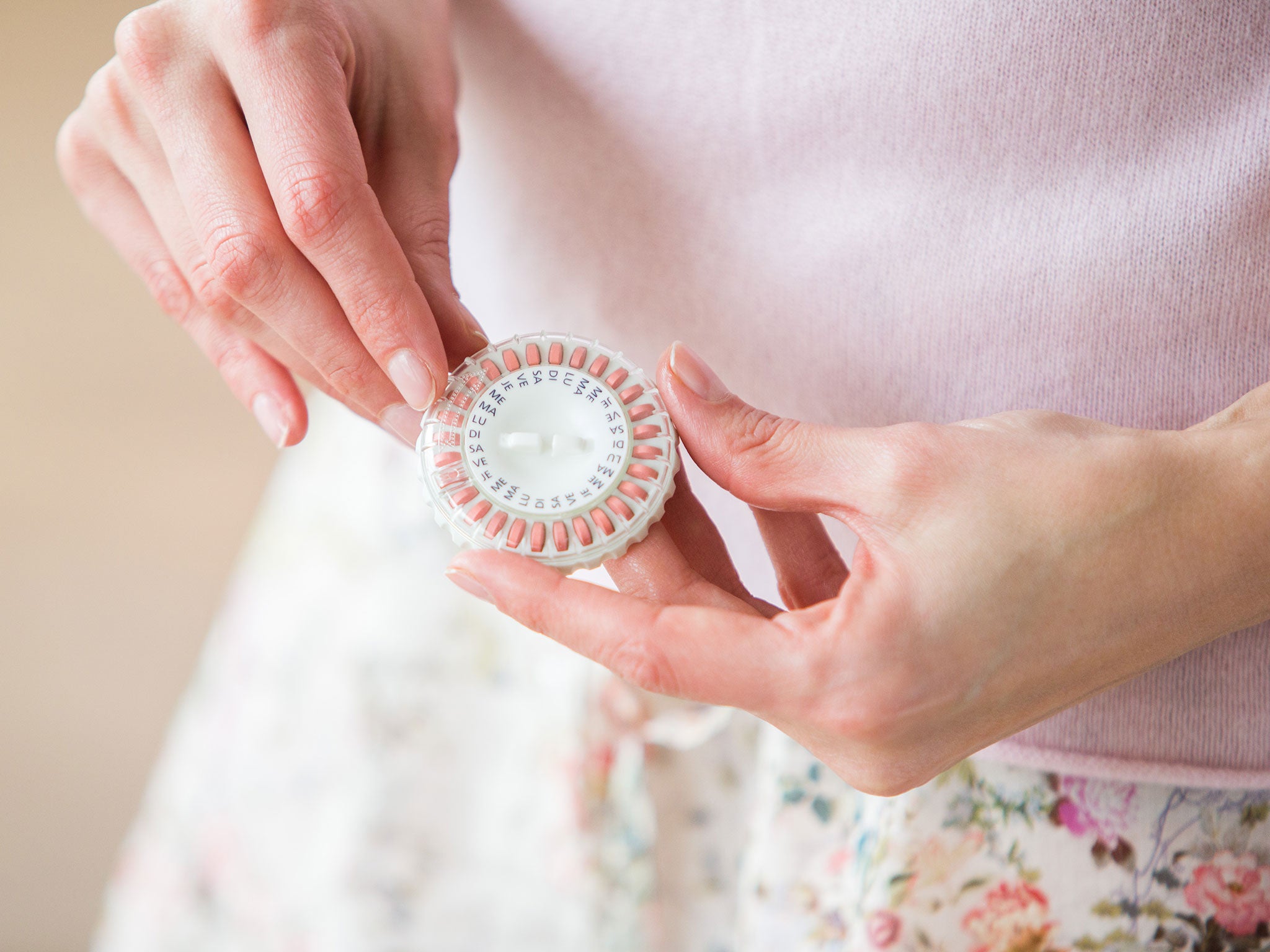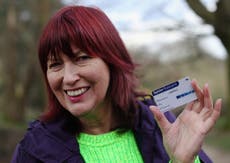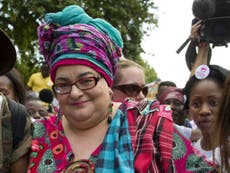My body has become a battleground for medical research – and I’m sick of it
Plus: It's going to be a rumble in the geriatric jungle


Thousands of women (including me) will be feeling very confused and angry this weekend. Our bodies have become a battleground, between two fiercely opposing medical viewpoints. There is no middle ground.
To be honest, I have no idea which side is telling the truth, who has a vested interest or which distinguished experts to believe. All I know is that if men had periods and a real (as opposed to a mental) menopause, then this nightmare would have been impartially discussed and resolved decades ago.
HRT – hormone replacement therapy – is a controversial treatment which can alleviate some unpleasant and uncomfortable symptoms of the menopause. It provokes strong opinions, with fans claiming it is beneficial with wonderful side effects, and angry critics suggesting it increases the risk of cancer and heart disease. Pro- and anti-HRT advice has confused not just the medical profession, but almost every woman I know. And if your average NHS appointment lasts about 11 minutes, then you’ve hardly got time even to start having a reasonable discussion with a GP.
The debate about HRT was reignited this week because Nice, the Government’s official advisory body on healthcare, has finally given it the official thumbs up, ending years of conflicting advice. Nice issued new guidelines recommending doctors should offer the drugs to almost half a million menopausal women.
Over the past decade, many GPs stopped prescribing these drugs. The result is that, in some areas, only 15 per cent of menopausal women are taking them because of the debate and confusion surrounding potential side effects. Some studies show that taking HRT drugs for a prolonged period of time can lead to a slight increase of breast and ovarian cancer (three or four extra women in every 1,000 taking it for five years), and an equally small risk of blood clots and strokes. But those same risks could result from a lot of other lifestyle options.
HRT, which can reduce hot flushes, night-time sweats, mood swings and other troubling symptoms, is a huge benefit to many women. Yet a large number remain too scared to take it, suffering the unpleasant side effects of the menopause for years. Exactly a day after the new Nice advice was released, one newspaper claimed the advisers had not consulted two cancer experts – both of whom profoundly disagree that HRT is risk-free. One went as far as saying that breast cancer rates could soar as a result of the new guidelines.
Half the panel members who advised Nice on HRT have links to drugs companies, but does that make them biased? Most medical experts receive help for research and Nice does not hide that information.
About a million women currently take HRT. I am one of them. I’ve been taking it for more than 20 years, and I am tired of my body being a battleground for medical research. I live a healthy life and find all the endless talk of cancer a profoundly negative industry that I do not want to blight my existence. My sister died from cancer, but she was a smoker. I have regular check-ups, but if I were to believe all the twaddle that’s spouted daily, I must not drink, not worry, not eat red meat and basically live the bloody life of a Carmelite nun in order to reach 100. Quite frankly, I’d rather pop a small pill, have fewer wrinkles, stronger bones and bypass the mood swings (aside from the impotent rages brought on by medical scaremongering).
Ignore the warring medics and listen to me: HRT can change your life – for the better.
A satisfyingly slow burn on the big screen
There’s something deliciously naughty about sloping off to the cinema after lunch. It’s one of my favourite guilty pleasures. Reading Colm Toibin’s novel Brooklyn back in 2009, I could not imagine it would translate to the screen because the prose is so poignant and poetic. There’s so much that’s unsaid.
The story of a young girl leaving a small town in Ireland and travelling to New York to make a new life – only to have to return and make a life-changing decision – is deceptively simple, but one I relate to because it’s also the story of my mother leaving her village and family behind in Wales at just 15 to work in service in Manchester.
The movie version of Brooklyn succeeds brilliantly because Saoirse Ronan is Toibin’s perfect heroine. Her expressive face reveals a huge depth of emotion; she will surely win every award going. How refreshing to enjoy a film which acknowledges that sadness is an important element in our lives. This isn’t an old-fashioned film, as some critics have dubbed it (perhaps because it tells a story at a certain pace – slowly). The moral dilemma in Brooklyn is utterly modern.
Soon it could be business as usual on a Sunday
SNP MPs scuppered government plans to extend Sunday trading beyond the current six-hour limit. It’s a cynical move because Sunday trading is already devolved to Scotland: all shops remain closed where the Free Church holds sway but, in places where there is a demand, Sunday shopping can be the same as every other day of the week.
I’m ambivalent about extending Sunday trading hours because it could have a big impact on the family life for people working in retail. But with supermarkets whingeing that profits could plummet because of business rates and the impact of the living wage, perhaps extending trading hours on Sunday will provide enough revenue to ensure that workers are treated fairly.
It’s going to be a rumble in the geriatric jungle
As inevitably as an Advent calendar, the Street-Porter telly (an ancient model bequeathed by my late mother) has adjusted to traditional seasonal fare. Every 15 minutes there’s an interminable and lavish Christmas advert, and tomorrow is the start of another season of I’m a Celebrity ... Get Me Out Of Here!.
I can barely believe it’s 11 years since I put on shorts and a fleece with JSP and a phone number emblazoned on the back, and slithered down a muddy slope into the Australian rainforest to join a motley gang – including Princess Diana’s camp butler, Paul Burrell. Within a week, he’d ripped the sleeves out of his bush shirt, dyed it pink and was singing a medley from South Pacific. That’s what jungle fever can do. This year, the contestants are older than usual – two are in their sixties – which means I actually recognise them.
One camper, Susannah Constantine, rang me for advice. A few years ago, Carol Thatcher also sought insider tips, but the silly woman seemed to have a memory lapse and had a very public toilet break next to her sleeping bag in the middle of the night, though I’d pointed out she would be under 24-hour surveillance.
I advised Susannah to smuggle in earplugs – not to drown the sound of tropical birds, but to ameliorate the endless wittering of camp mates. It’s easy to spot potential weaknesses. Chris Eubank is obsessively tidy, so he might have issues. Duncan Bannatyne, Tony Hadley and Lady Colin Campbell are all going to have the same problems: the creaking of ageing joints first thing in the morning and the difficulty of good hair in humid conditions. I can’t wait.



Join our commenting forum
Join thought-provoking conversations, follow other Independent readers and see their replies